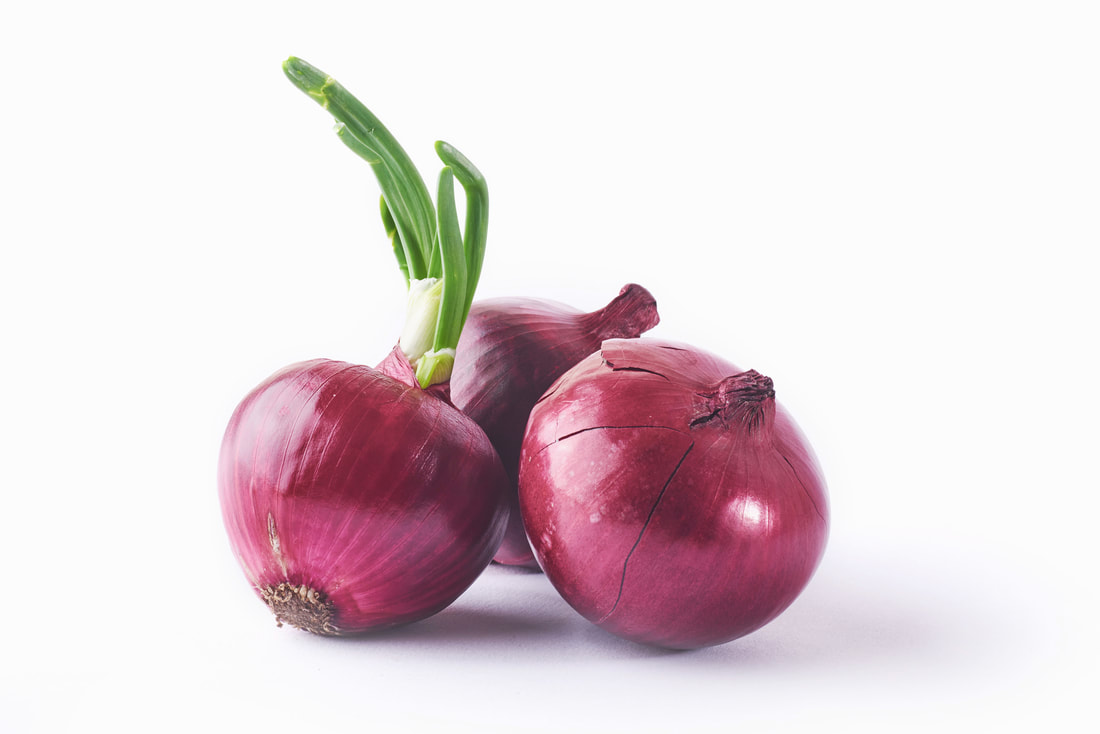|
Onions are an overlooked vegetable. Whether they’re being sautéed for a soup, sliced for a burger, or pickled for a salad, onions rarely steal the show of a meal, although they often inspire a sob story.
Onions are most known for their pungent flavor, not necessarily their nutritional value. Their white flesh (even in red onions) isn’t always perceived as being as nutritious as vibrantly colored vegetables like kale, broccoli, or beets. But that’s no reason to snub onions. Although some onion varieties are lacking in color, onions in general are one of the highest natural sources of a powerful flavonoid: quercetin.1 What is quercetin? Quercetin is a flavonoid, which is a chemical compound found in plants. In addition to onions, quercetin is also found in many other fruits and vegetables like capers, asparagus, and apples, as well as tea and red wine.1 A single serving of onions is considered to be one medium onion, which contains around 52 milligrams (mg) of quercetin.2 But most people tend to not eat a whole onion in one sitting (unless they really like onions), so you’re probably not getting quite that much quercetin when you eat onions. Even with all these natural sources of quercetin, it’s estimated that most people following a typical Western diet (think higher in simple sugars and animal products and lower in produce) only get 0 to 30 mg a day.1 That’s not a lot, considering research shows that some of quercetin’s health benefits are reached at supplemental intake levels, not from a food source, of 500 to 1,000 mg per day.3 Quercetin and health Quercetin is one of the most studied dietary flavonoids and is associated with multiple health benefits. Two of this compound’s most notable benefits are supporting heart health and protecting against oxidative stress. Heart health: Quercetin plays a positive role in supporting healthy blood pressure and endothelial health.4 The endothelium is the thin layer of cells lining the body’s blood vessels and heart. It is considered an active organ in the body as it helps control when blood vessels relax or constrict.5 Protection against oxidative stress: Everyone undergoes oxidative stress, which is caused when there is an imbalance of harmful free radicals, which damage cells and tissues. This process happens inside the body, so although you may not feel immediate effects from oxidative stress, it can affect both health and the immune system over time. Antioxidants can help quell some of that stress. And since quercetin acts as a free radical scavenger and supports antioxidant processes, it’s especially good at this.3 Getting the most quercetin out of onions Because these health benefits are mainly seen at higher levels of quercetin intake, it’s important to maximize what you can from the diet. Here’s how you can get the most quercetin when eating onions.
Onions are a rich, natural source of the flavonoid quercetin. High intakes of quercetin are associated with cardiovascular benefits and oxidative stress protection. However, quercetin is not a “magic bullet” to health. Instead, focus on eating a plant-forward diet with lots of produce and know that onions, albeit smelly, are a healthful choice. References:
0 Comments
Leave a Reply. |
Categories
All
Archives
April 2024
|
|
Join Our Community
|
|
Amipro Disclaimer:
Certain persons, considered experts, may disagree with one or more of the foregoing statements, but the same are deemed, nevertheless, to be based on sound and reliable authority. No such statements shall be construed as a claim or representation as to Metagenics products, that they are offered for the diagnosis, cure, mitigation, treatment or prevention of any disease. |



 RSS Feed
RSS Feed